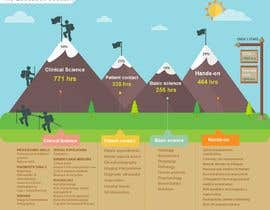If you're experiencing pain in the back, your body may be trying to inform you something more than just discomfort. The means your back feels can give beneficial hints about your total wellness. Understanding the certain sort of pain you're feeling and any accompanying symptoms is vital to unraveling the enigma behind your discomfort. Allow's discover the usual problems and signs and symptoms connected with different types of pain in the back to clarify what your body may be signaling.
Types of Back Pain
When it comes to pain in the back, there are numerous kinds that you may experience. One typical type is muscle mass discomfort, commonly triggered by overuse, strain, or injury to the muscles and tendons supporting the spinal column. This type of discomfort can range from moderate discomfort to severe and incapacitating discomfort.
Another type is nerve discomfort, which can result from conditions like herniated discs or sciatica. Nerve discomfort usually presents as a sharp, shooting feeling that emits down the leg.
Joint discomfort in the back can stem from concerns like arthritis or sacroiliac joint disorder. This kind of pain is usually really felt in the lower back and can be exacerbated by certain motions.
Furthermore, pain in the back can be connected to structural troubles such as spinal stenosis or vertebral fractures. Recognizing the sort of pain in the back you're experiencing is critical in identifying the proper treatment and management strategies.
Common Effects to Watch For
Moving past the numerous types of back pain, it is very important to recognize the usual signs that can indicate underlying issues.
Consistent neck and back pain that gets worse with movement or at night could suggest a much more major trouble. Pins and needles or tingling in the legs or feet, specifically when accompanied by weakness, might indicate a nerve-related problem. If you experience sudden weight-loss together with neck and back pain, maybe an indicator of an extra systemic problem.
Focus on any changes in bladder or bowel feature, as this could be linked to spinal cord compression. just click the following webpage , chills, or evening sweats in conjunction with pain in the back might indicate an infection. Watch out for click here that radiates down one or both legs, possibly indicative of sciatica.
Wellness Issues Linked to Pain In The Back
If you deal with pain in the back, it's crucial to recognize the potential health problems connected to this pain. Neck and back pain can be a signs and symptom of various underlying concerns, including muscle stress, herniated discs, osteo arthritis, spinal stenosis, and even problems like kidney rocks or infections.
Muscular tissue pressures prevail and usually result from raising hefty things or abrupt motions.
Herniated discs take place when the soft tissue between vertebrae protrudes, creating nerve irritability.
Osteoarthritis, a degenerative joint disease, can bring about back pain as cartilage material wears down.
Spine constriction, the narrowing of the spine canal, can put pressure on nerves.
Kidney rocks might cause extreme pain in the back if they relocate into the urinary system system.
Infections like spine osteomyelitis can likewise materialize as back pain. Understanding these possible health and wellness conditions can help you look for suitable healthcare and monitoring for your back pain.
Conclusion
So, next time your back harms, take note of the kind of pain and going along with symptoms. Maybe a signal from your body concerning underlying health and wellness conditions like muscle mass pressure, nerve problems, joint problems, or perhaps structural concerns. By recognizing these indicators, you can take positive actions to resolve the origin of your back pain and enhance your general health and wellness.
